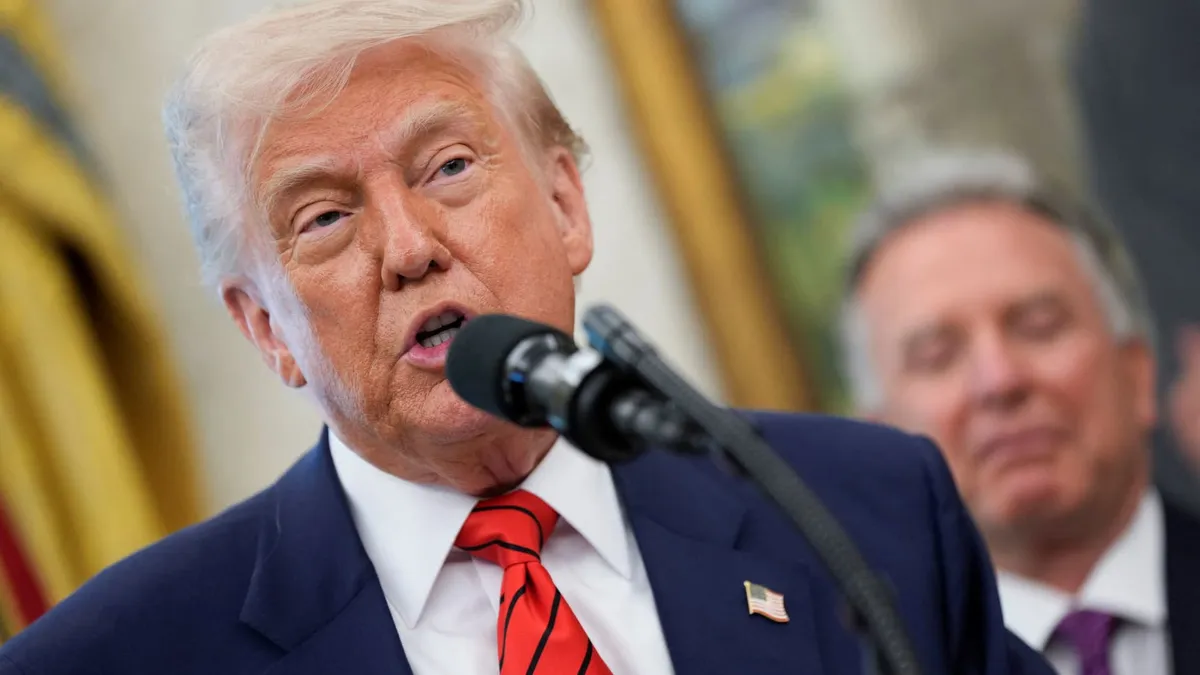
On Friday, former President Donald Trump offered a cautious endorsement of the idea of raising taxes on the wealthiest Americans. His remarks came amid a public grappling with the political implications of such a proposal and a suggestion that his fellow Republicans should likely oppose it. This public deliberation was shared on social media after Trump reached out to House Speaker Mike Johnson, a Republican from Louisiana, about potentially including a tax hike on high earners in the significant tax and spending bill the GOP aims to pass this year.
This latest signal from Trump indicates a departure from the standard Republican orthodoxy regarding taxation. Traditionally, the Republican Party has been resistant to tax increases, especially on the wealthy. However, Trump, known for his unpredictable political stances, expressed a willingness to consider the benefits of a modest tax increase on the rich. In a post on Truth Social on Friday morning, he stated, "I and all others would graciously accept even a 'TINY' tax increase for the RICH for the benefit of lower and middle-income workers."
Despite his apparent openness to a tax increase, Trump underscored the potential backlash from the left, stating that "the Radical Left Democrat Lunatics would go around screaming, 'Read my lips.'" This reference alludes to former President George H.W. Bush's infamous 1988 campaign promise not to raise taxes, a commitment that ultimately contributed to Bush's political downfall in the 1992 election. Trump, however, asserted that it was actually Ross Perot who cost Bush the election, rather than the broken promise itself.
Trump's comments could intensify the pressure on GOP leaders who are already facing challenges in constructing a tax bill that aligns with Trump's vision of extensive tax cuts while also appeasing the party's fiscal conservatives. During his campaign and presidency, Trump pledged to eliminate taxes on overtime pay, service workers' tips, and Social Security for seniors. He also wants to extend the corporate tax cuts that were enacted in 2017 during his first term.
On Friday, Rep. Jason Smith, the chairman of the House Ways and Means Committee, is scheduled to meet with Trump to discuss the evolving tax strategy. In a recent address, Speaker Johnson informed his Republican colleagues that funding for the previously targeted $4.5 trillion in tax cuts would not be feasible, as reported by Politico. During a phone conversation with Johnson earlier in the week, Trump suggested the possibility of creating a higher tax bracket for top earners, with exemptions for small businesses, as noted by CNBC.
Additionally, Trump proposed closing the carried interest loophole, a provision of the tax code often exploited by Wall Street investors, according to NBC News. This combination of proposals reflects the ongoing discussions within the Republican Party regarding tax reform and the balancing act they must perform to satisfy both Trump's ambitious agenda and the party's fiscal policies.